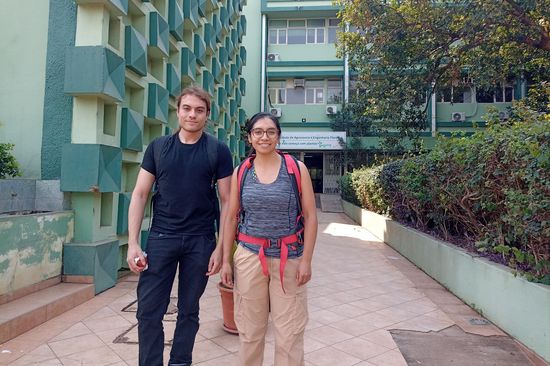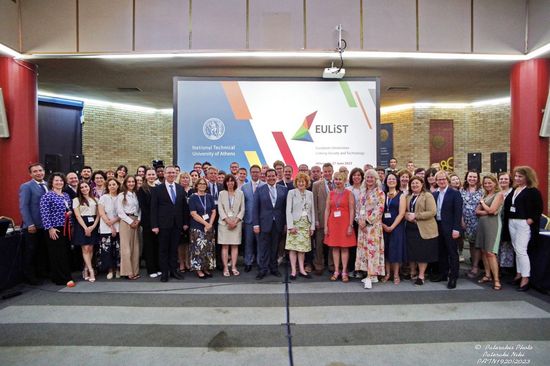Satellites Against Drought: Training the Next Generation in Mozambique


No other species on this planet has such an impact on the environment as humans. We are only just beginning to understand the complexity of the network of relationships and interactions between the different aspects of Earth's ecosystem.
Only if we know exactly the state and development of the environment we can control the effect that our behaviour has on the natural environment around us. The best and latest research methods are already able to do this – both in terms of basic research and in applied research.
All these research activities are of global importance – but of course there are specific topics that are particularly important for Austria. Austria has both huge river basins within the Danube area and the ecologically sensitive Alps. It is evident that environmental research must pay special attention to this specific situation in Austria. Through these region-specific questions, TU Wien contributes to laws and directives at national and EU level as well as to global discussions in the academic community at an international level.
By using the latest research methods and an interdisciplinary network of experts, TU Wien is taking a systematic step towards preserving our environment and maintaining an unspoilt natural world.
TU Wien is playing an important role in the development and application of environmental analysis methods. These are used to record the quality of the environment and also to identify changes in environmental conditions (climate change).
In environmental research, the topic of water plays a decisive role at TU Wien – groundwater, bodies of water and flowing water are studied and modelled, different analyses of the water quality and effects on our health are carried out along with research into the risk of flooding. Clean air is just as vital as water: the concentration of air pollutants such as particulate matter and other aerosols – tiny particles which float in the air – is measured and monitored using sophisticated devices and sensors. Our soils are also evaluated using physical, chemical and geometric processes – to determine the soil moisture, to estimate the available biomass and in regard to contamination. Less commonplace, but no less important, is radiation protection: TU Wien also has top-ranking experts in this field who investigate radiation effects, for example, and analyse environmental samples using a range of methods.
Some questions require insight that cannot be obtained on site or in the laboratory; sometimes you need to really stand back and take a look at nature from some distance: satellite methods play an essential role in environmental analysis nowadays. Satellite and airborne data is evaluated by TU Wien experts who are able to undertake this highly-complex task to obtain the necessary insight into environmental conditions on large spatial scales.
Simply collecting environmental data does not result in any kind of real progress. The findings must also be put into practice in order to actually improve the quality of our environment. They can be a valuable input for technological improvements, they can also enable us to take further steps towards more efficient use of resources, and provide the basis for environmental impact assessments.
Environmental monitoring plays a central role at TU Wien in the area of natural hazard management. Dangers such as floods and mass movements (landslides, rockfalls, earthquakes) can be assessed and predicted with greater accuracy through careful analysis and often through mathematical modelling, too. Ecological considerations and pilot projects in the field of hydraulic engineering optimise influences in the balance of nature while analysis and risk assessment of wastewater also protects our vital resource – water. To round off the topic, experts at the TU Wien also focus on matters relating to environmental law.
Climate change is also a focal point in natural hazard management: unlike the majority of other research areas, it is a highly complex, interdisciplinary, networked and global issue. The expertise of TU Wien in this area ranges from the collection of climate-relevant data to the ecological optimisation of technical processes and the prognosis of climate impacts through to questions of climate policy.
Management of natural disasters
Emissions and pollutant measurements, quality analysis
Environmental analysis and modelling
Mathematical and geometrical data basis
Environmental impact assessments
Mathematics and Geoinformation, Civil Engineering and Technical Chemistry are the main faculties represented in this research field. Research activities are in applied research with a strong link to basic research activities.
Research groups from 17 institutes research the state of our environment and the causes and effects of climate change from a range of perspectives. Approximately 5.8 million euros is invested in around 125 research projects per year. The academic output remains at a stable level, whereby a significant rise was seen in SCI publications in recent years.
All data and information provided relates to the research period 2016-2018 (based on the period of the Performance Agreement).


![[Translate to English:] Zwei Wildschweine in einer Erdgrube](/fileadmin/_processed_/1/b/csm_Wildschein_Paradox_-_Beim_Suhlen_c6b8150913.jpg)
